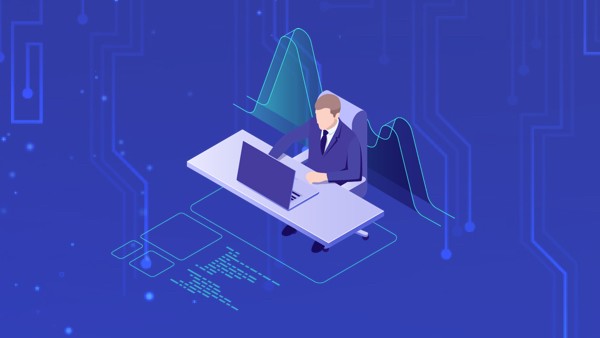- Overview
- Outline
- Reviews
- Packages
Many PHP engineers can smoothly use the TP framework for business development at work, but they are at a loss when there are upgrades or changes to the framework. If the developer has a certain understanding of the underlying source code of the framework, this problem can be easily solved.
Course introduction (Be sure to read it and know the overall introduction so that you can better learn follow-up courses)
- A must-have for interviews, a first choice for salary increases28:55
- Why learn framework source code27:28
- How to efficiently learn framework source code18:44
- Version requirements and framework acquisition and installation17:16
Automatically load Loader in-depth analysis (please listen carefully to key chapters, and it is recommended to listen to them multiple times)
- Class automatic loading initial26:41
- spl_autoload_register For first time23:51
- Automatic Load Loader In-depth Analysis16:56
- Automatic Load Loader In-depth Analysis14:13
- Automatic Load Loader In-depth Analysis15:30
- Add custom classes to the framework16:33
- Automatic loading of classes under composer29:33
Interpret configuration files
- Profile Overview25:45
- Analysis of clever use of the underlying ArrayAccess class in PHP13:19
- performance is demonstrated24:46
- High-performance yaconf compilation and installation23:47
- load Loading depth analysis14:36
- load Loading depth analysis28:37
- Low-level optimization of TP framework24:13
- config low-level class library optimization15:44
- Other content source code analysis14:58
TP5 IOC container and Facade in-depth analysis (master the use of core class libraries and challenge high salaries)
- singleton pattern19:18
- Registration tree model22:41
- How to understand dependency injection and control inversion14:48
- In-depth study of PHP reflection mechanism 116:51
- In-depth study of PHP reflection mechanism II10:09
- Play with your own containers26:52
- Use Countable skillfully12:51
- Get the instance analysis in the container11:42
- Container class actual combat27:49
- Class library analysis19:07
- Legend analysis17:43
- Let your friends truly understand the facade model15:41
- Sections of this chapter15:22
Framework execution process and routing interpretation
- Initialize application data settings25:02
- multiple initialization resolution22:32
- Framework execution process initialization application init analysis-in-depth analysis of loading related files10:49
- Framework Execution Process Initialization Application init Analysis-Scenario Analysis21:20
- Configuration updates to object instances in the container12:49
- Detailed explanation of debugging modes and code redundancy18:52
- Simple analysis of route initialization23:23
- route definition28:13
- Route definition-Brain mapping analysis of rule method execution methods in Route class25:38
- Explanation of routing rule preprocessing23:19
- Analyze variables in routing rules-parseVar19:21
- Generate quick access to routing identity10:25
- routing parameter analysis15:42
- variable rule29:22
- resource routing19:30
- Routing Configuration-Interpretation of Array Configuration29:20
- First meeting of dispatch22:55
- route-check detects URL routing24:35
- How to find the request class11:07
- Detect domain name routing19:55
- Detect Routes-Combine Packet Parameters13:08
- Check whether URL variables and rule routes match11:14
- Analyze the matching rule route-dynamic processing of routing addresses23:17
- Initiate routing scheduling16:53
Controller interpretation
- instantiation controller18:12
- Execution of methods in controller19:45
- Perform autoResponse scheduling25:18
- How to output data to the terminal28:55
- Use of fastcgi_finish_request method skillfully28:26
- Explanation of trait characteristics28:04
- Analysis of clever application of controller initialization27:07
In-depth interpretation of model and view levels
- the preparatory work10:55
- Explanation of the correspondence between Db operation classes and other classes. mp412:24
- Db Class Library Scenario Analysis29:28
- Db class library cleverly combines connector, query, and sql generator24:06
- Analysis of preliminary preparation work for model scenarios28:53
- model scenario analysis-new logic29:21
- In-depth analysis of model scenarios29:32
Exception handling, caching (key chapters, I am embarrassed to explain it clearly without reading much)
- Analysis of cache settings13:30
- Analysis of cache acquisition22:05
Tp6 version analysis
- A brief introduction to TP6 and subsequent planning29:17
Frame-level interview skills (teach you how to easily get the interviewer and get the offer)
- interview skills21:52
course summary
- Course summary (I wish you all learning well)17:45

